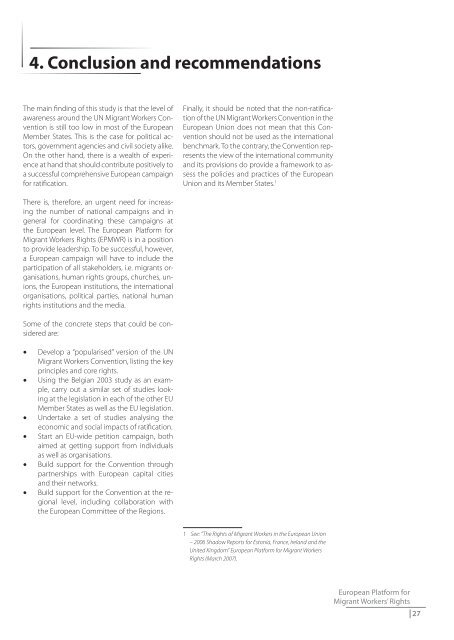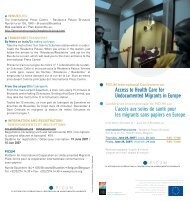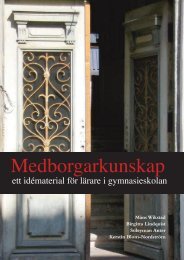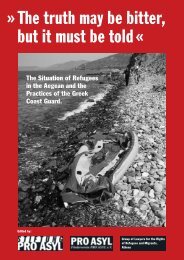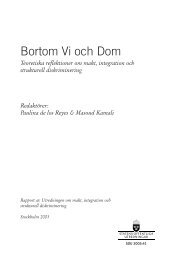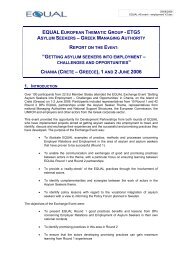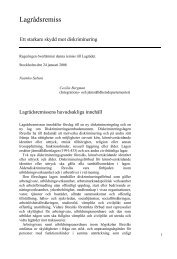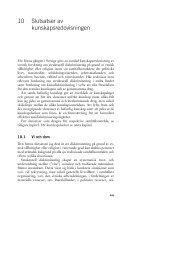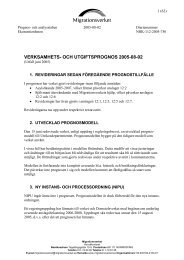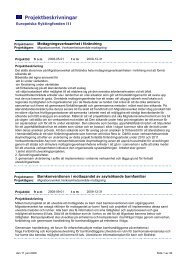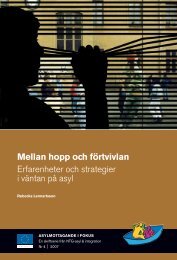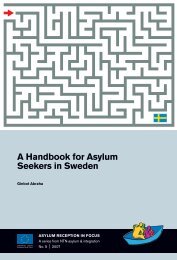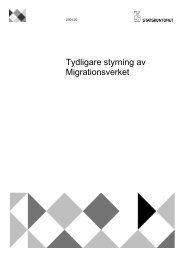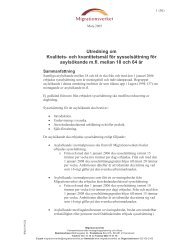The UN Migrant Workers Convention: Steps Towards Ratification
The UN Migrant Workers Convention: Steps Towards Ratification
The UN Migrant Workers Convention: Steps Towards Ratification
Create successful ePaper yourself
Turn your PDF publications into a flip-book with our unique Google optimized e-Paper software.
4. Conclusion and recommendations<br />
<strong>The</strong> main finding of this study is that the level of<br />
awareness around the <strong>UN</strong> <strong>Migrant</strong> <strong>Workers</strong> <strong>Convention</strong><br />
is still too low in most of the European<br />
Member States. This is the case for political actors,<br />
government agencies and civil society alike.<br />
On the other hand, there is a wealth of experience<br />
at hand that should contribute positively to<br />
a successful comprehensive European campaign<br />
for ratification.<br />
Finally, it should be noted that the non-ratification<br />
of the <strong>UN</strong> <strong>Migrant</strong> <strong>Workers</strong> <strong>Convention</strong> in the<br />
European Union does not mean that this <strong>Convention</strong><br />
should not be used as the international<br />
benchmark. To the contrary, the <strong>Convention</strong> represents<br />
the view of the international community<br />
and its provisions do provide a framework to assess<br />
the policies and practices of the European<br />
Union and its Member States. <br />
<strong>The</strong>re is, therefore, an urgent need for increasing<br />
the number of national campaigns and in<br />
general for coordinating these campaigns at<br />
the European level. <strong>The</strong> European Platform for<br />
<strong>Migrant</strong> <strong>Workers</strong> Rights (EPMWR) is in a position<br />
to provide leadership. To be successful, however,<br />
a European campaign will have to include the<br />
participation of all stakeholders, i.e. migrants organisations,<br />
human rights groups, churches, unions,<br />
the European institutions, the international<br />
organisations, political parties, national human<br />
rights institutions and the media.<br />
Some of the concrete steps that could be considered<br />
are:<br />
• Develop a “popularised” version of the <strong>UN</strong><br />
<strong>Migrant</strong> <strong>Workers</strong> <strong>Convention</strong>, listing the key<br />
principles and core rights.<br />
• Using the Belgian 2003 study as an example,<br />
carry out a similar set of studies looking<br />
at the legislation in each of the other EU<br />
Member States as well as the EU legislation.<br />
• Undertake a set of studies analysing the<br />
economic and social impacts of ratification.<br />
• Start an EU-wide petition campaign, both<br />
aimed at getting support from individuals<br />
as well as organisations.<br />
• Build support for the <strong>Convention</strong> through<br />
partnerships with European capital cities<br />
and their networks.<br />
• Build support for the <strong>Convention</strong> at the regional<br />
level, including collaboration with<br />
the European Committee of the Regions.<br />
<br />
See: “<strong>The</strong> Rights of <strong>Migrant</strong> <strong>Workers</strong> in the European Union<br />
– 2006 Shadow Reports for Estonia, France, Ireland and the<br />
United Kingdom” European Platform for <strong>Migrant</strong> <strong>Workers</strong><br />
Rights (March 2007).<br />
European Platform for<br />
<strong>Migrant</strong> <strong>Workers</strong>’ Rights<br />
27


